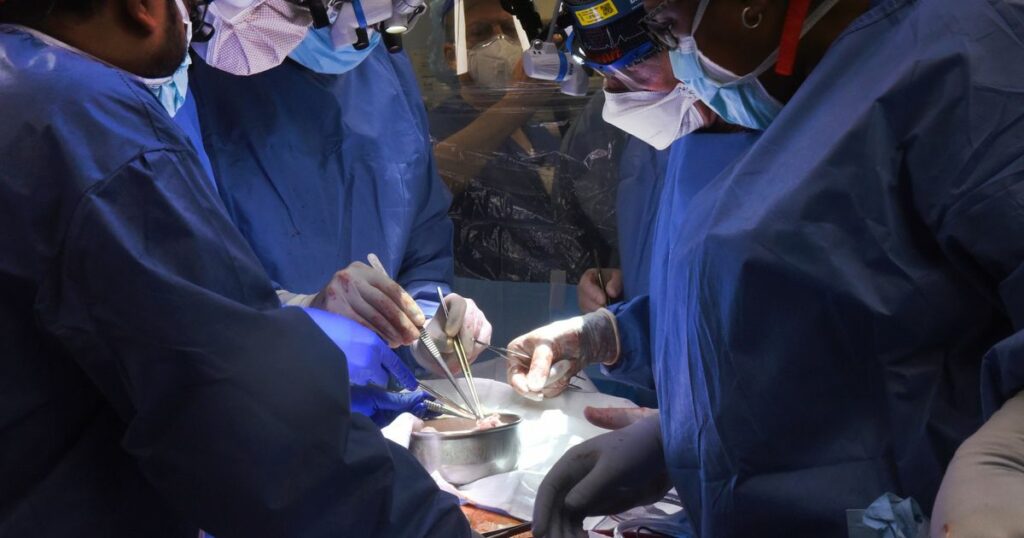UNIVERSITY OF MARYLAND SCHOOL OF MEDICINE / AFP
HEALTH – She had been hailed around the world. On January 7, 2022, surgeons succeeded in transplanting a heart from a genetically modified pig into a human patient. The joy, however, was short-lived since the University of Maryland Medical School announced the death of David Bennett two months later, on Tuesday March 8.
Until now, the cause of his death had not been clearly identified. Based on a new report (which has not yet been made official), the MIT Technology Review now claims that a potential answer has been found.
A porcine virus at the origin?
« We’re beginning to understand why he died, » Bartley Griffith, a transplant surgeon at the University of Maryland School of Medicine who performed the transplant, told the MIT review. Indeed, Mr. Bennett’s porcine heart was reportedly infected with a porcine virus called cytomegalovirus, a preventable infection that can have devastating effects on transplants.
Cytomegalovirus is an endogenous virus (born from within, editor’s note) in all pigs. Nevertheless, the researchers explained that they had not detected any transmission of this virus to humans or non-human primates in previous studies. However, for Dr Griffith, this virus “maybe was the actor, or could be the actor, who started all of this”.
BREAKING: The heart used in pioneering University of Maryland xenotransplant experiment was infected by a pig virus–may have contributed to patient’s death after 60 days. https://t.co/iiHfbpgIDY
— Antonio Regalado (@antonioregalado) May 4, 2022
Indeed, previous research testing pig-to-human transplant techniques on baboons showed that kidney transplants failed about four times faster when the notorious pig virus (cytomegalovirus) was present. Another 2020 study also conducted on baboons had led to similar results.
It is nevertheless complex to remove all traces of the virus, because the donor’s immune systems are generally inhibited intentionally, in order to reduce the risk of rejection. Indeed, the defense system of a body, human or animal, does not differentiate foreign elements, whether it is a virus or an organ.
An imperfect operation, but a major step forward
Unprecedented, the operation had made it possible to show for the first time that an animal heart could continue to function inside a human without immediate rejection. To do this, the scientists had genetically modified the pig to remove the animal’s genes, while adding human genes.
This was the last-ditch operation for David Bennett, who had been declared ineligible to receive a human transplant. “It was either death or this transplant. I want to live. I know it’s quite risky, but it was my last option”, explained the main interested party.
If the finality is dramatic, this operation nevertheless allows new hopes according to Bartley Griffith: “It is a major surgical advance and which brings us still a little closer to a solution to the shortage of organs”. Indeed in the United States, nearly 110,000 Americans are currently on the waiting list for an organ transplant and more than 6,000 people who need a transplant die each year in the country.
See also on HuffPost: These chimpanzees are able to make bandages with insects


